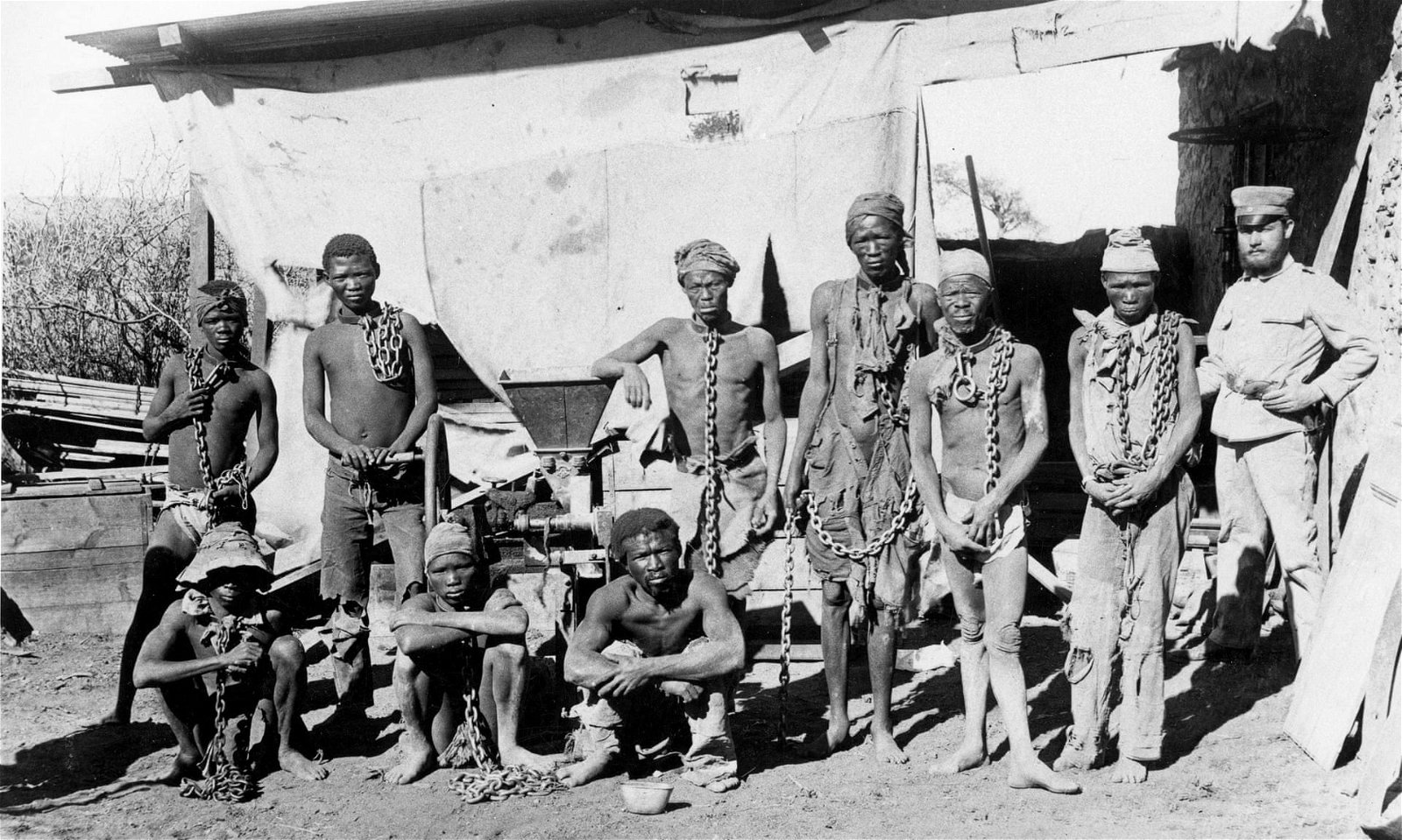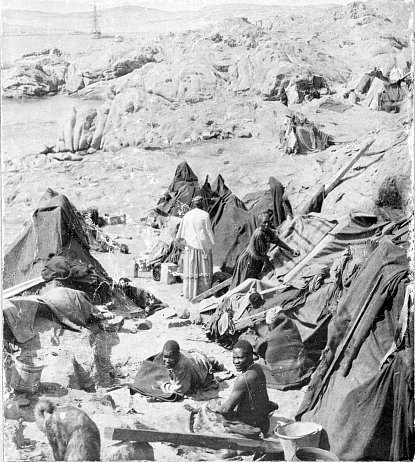
Germany and Namibia have come to an understanding after more than five years of contentious negotiations over the crimes committed by the German colonial power against the native Herero and Nama people in its former colony between 1904 and 1908. German Foreign Minister Heiko Maas has apologized for the atrocities on behalf of his government in a statement on Friday, May 28, asking for forgiveness for the “crimes of German colonial rule” which were formally acknowledged as a genocide.
“Our aim was and is to find a common path toward true reconciliation in memory of the victims. One part of that is that we name what happened during the German colonization of what today is Namibia, and especially the atrocities in the period between 1904 and 1908, unsparingly and without extenuation,” said Maas in his statement. “We will now officially call these events what they are from today’s perspective: genocide.”
Germany will pay $1.3 billion to Namibia for reconstruction and development projects in the country as a “gesture of recognition of the immeasurable suffering that was inflicted on the victims,” said Maas in a move toward reconciliation more than 100 years after the events. During that time, when the country was known as German South West Africa, colonial forces violently killed upwards of 80,000 members of the Herero and Nama indigenous peoples when they revolted against colonial land seizures. German soldiers shot some people outright, while others were driven into the desert without food or water. Thousands were beaten, starved and worked to death in concentration camps in the Kalahari Desert.

While German and Namibian negotiators say that members of the Herero and Nama communities were included in the reconciliation process, leaders of the victim groups have rejected the outcome, citing concerns that the money will not make it to descendants of those who perished. Paramount Chief of Herero people Vekuii Rukoro said that victim groups expect monetary reparations to be “in the form of a collective payment to the descendants of those killed and pushed off their land during the genocide,” many of whom live in poverty in crowded settlements on the margins of Namibian society. According to Herero Genocide Foundation member Esther Muinjangue, one problem associated with the agreement is that the development projects “won’t benefit Hereros and Namas whose ancestors fled the genocide to Botswana and South Africa.”
Meanwhile, Germany’s foreign ministry said that the projects associated with the genocide recognition will focus on issues of concern for those areas inhabited by the Herero and Nama, including land reform, agriculture, rural infrastructure, water supply and job creation.
“The crimes of German colonial rule have long burdened relations with Namibia. There can be no closing of the book on the past,” said Maas. “However, the recognition of guilt and our request for apology is an important step towards coming to terms with the crimes and shaping the future together,” he concluded.
German President Frank-Walter Steinmeier will make an official request for forgiveness in a ceremony in the Namibian parliament, according to German media.



Did Germany ever take responsibility for the Armenian Genocide? I recall a German researcher named Kaiser published a paper alleging the German advisers to the Turkish Army were responsible for the germ of the idea to exterminate the Armenians.
Martinican author Aime Cesaire postulated that the genocide carried out by Nazi Germany was not an aberration. The Europeans had committed hideous atrocities everywhere they had colonized: India, Algeria, Congo, and the Americas. Therefore, it was inevitable that they would commit genocide against another set of Europeans.
I fully agree. However, going back further and farther afield reveals many more genocides. One example is the Mongols’ genocides which were large scale and included wide destruction of agricultural land and water systems. Upon researching Biblical times one runs across Assyrian policies of genocides that includes uprooting whole populations and transferring them to other places. Of course many died in these events. Kings boasted of destroying every human and other living beings in the towns they defeated.
The planned extermination of the Hereros and Namas in 1904-1907 was the first case of modern mass murder and genocide where the harsh elements of nature were used as means of extermination of civilian populations. When this crime was denounced in the newspapers in Europe in 1905, it raised a great wave of indignation and led the German government to dismiss Lothar Von Trotha, the German military commander who committed those genocidal acts. This general denunciation has also – tragically – publicized this new method of extermination, and – in my view – planted in the minds of some young tourks the seeds of the idea of using the Syrian desert as a method of extermination of the Armenians and other Christians living under tourkish rule. It is noteworthy that the tourks had never previously used the desert as a method of annihilation until after they saw how well the method worked under the Germans. It would be very useful to conduct a research on what the ottoman newspapers had written about the mass murder of the Hereros at that time (and thus indirectly presented the method to the future tourk murderers) and whether any of the tourkish nationalist newspapers had expressed approval and support to such methods.
The victims’ descendants will not be compensated whose loss of homes and lands have left them in poverty. Germany’s wish to rebuild and restructure may seem like a noble plan but the compensation is only a pretext to implement colonial rule. Those who would have been the landlords of their own lands today will now become slaves of a country that made them poor in the first place. And under the guise of rebuilding and restructuring, Germany will end up funding corrupt governments that will give them open access to get their grubby hands on the resources that belong to the Namibians. No one gives that much money if they don’t expect to profit. This is the new form of colonialism taking shape in the world today and the main loser is Mother Earth, getting exploited so human viruses can thrive. The only way to get out of these foul deals is to push the UN to make reforms about how genocide survivors benefit. It might discourage countries from perpetrating war crimes in the first place if the perpetrator is punished by having to repay the survivors directly.
And adding back to my comment: Namibia is a country rich in diamonds, gold, copper, uranium with many other industrial minerals and precious stones. Namibia’s gold production has increased threefold from 2009 to 2016. Also in play is gas exploration operations that has brought a lot of international interest. The only reason for this reconciliation is a way for Germany to get into the action. If they build the infrastructures, it will benefit the investors, not the Namibians. Foreign investment isn’t necessarily a bad thing but progress in mining is nothing more than dirty pollution for the environment. Mining poisons waters with arsenic and mercury which then creates a sick nature and kills the local people. It’s really another form of genocide. Already with scarce water resources, i cannot see this initiative as benefitting Namibia or its citizens. And Namibians will only be exploited as miners who are little paid and ill treated. Their country will never become rich because they will be exploited. Look elsewhere in Africa and you will see this trend. If Germany really wanted reparation, it would give the money directly to the survivors who would be able to buy land, animals and equipments necessary to tend to their livelihood. The money Germany offers is a poisoned gift.